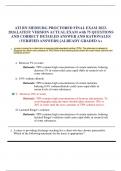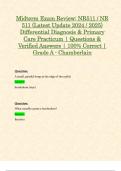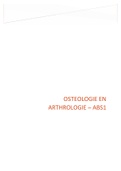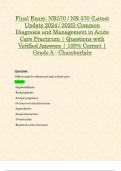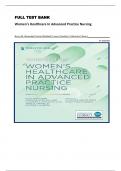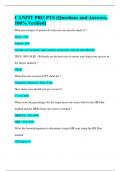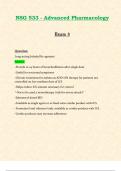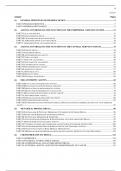Exam (elaborations)
ATI RN MEDSURG PROCTORED FINAL EXAM .LATEST VERSION ACTUAL EXAM with 75 QUESTIONS AND CORRECT DETAILED ANSWER AND RATIONALES (VERIFIED ANSWERS) |ALREADY GRADED A+
- Course
- Institution
ATI RN MEDSURG PROCTORED FINAL EXAM .LATEST VERSION ACTUAL EXAM with 75 QUESTIONS AND CORRECT DETAILED ANSWER AND RATIONALES (VERIFIED ANSWERS) |ALREADY GRADED A+
[Show more]
